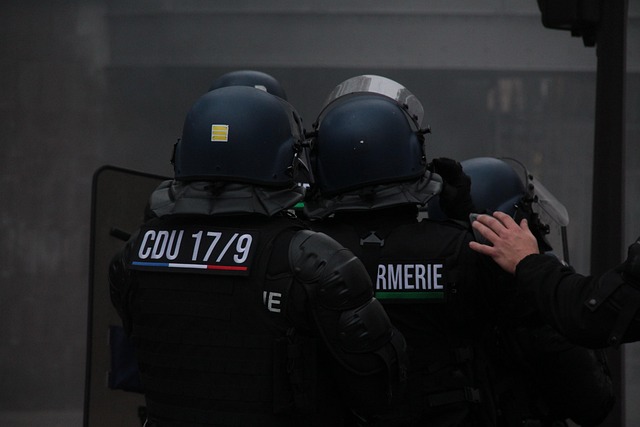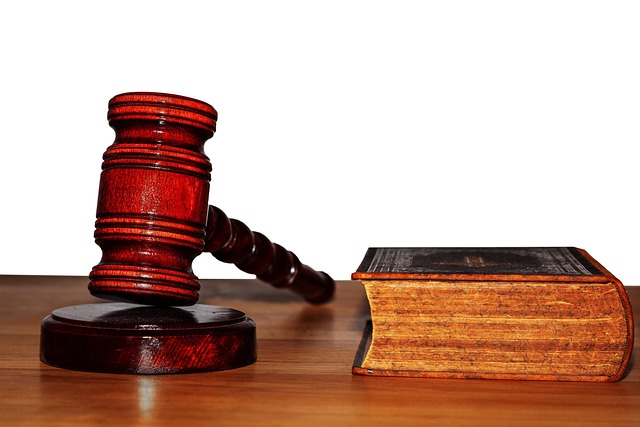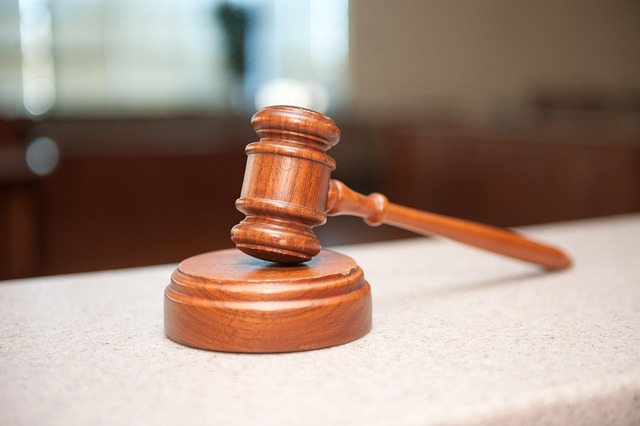RF Regulatory Agencies (RFRA) enforce RF standards across sectors, using inspections, complaints, and penalties with a Statute of Limitations for Libel Cases typically capping legal actions within 2-3 years to maintain fairness in investigations involving libel claims. Understanding this timeframe is crucial for businesses facing RFRA investigations, influencing their defense strategies and potential outcomes, including avoiding indictment and preserving market competitiveness.
In today’s interconnected world, RF (Radio Frequency) technologies underpin our daily lives. RF Regulatory Agency Investigations play a crucial role in ensuring these technologies comply with safety standards and regulatory frameworks. This article delves into the intricate workings of these agencies, exploring their authority and how they initiate investigations. We dissect key procedures, including evidence collection and legal aspects like the Statute of Limitations for Libel Cases. Understanding these processes is vital for companies navigating RF technology regulations to ensure compliance and mitigate potential implications.
- Understanding RF Regulatory Agency Authority
- Initiating an Investigation: Triggers and Procedures
- Legal Framework: Statute of Limitations for Libel
- Evidence Collection and Review Process
- Resolutions and Implications for Companies
Understanding RF Regulatory Agency Authority

RF Regulatory Agencies operate within a framework defined by federal statutes and regulations, granting them the authority to oversee and enforce compliance with radio frequency (RF) standards. These agencies play a vital role in ensuring the safe and efficient use of RF technologies, encompassing various sectors such as telecommunications, broadcasting, and wireless devices. Their powers include conducting inspections, investigating complaints, and imposing penalties for non-compliance, including fines and license revocations.
Understanding the scope of an RF Regulatory Agency’s authority is crucial, especially regarding the Statute of Limitations for Libel Cases, which varies across jurisdictions but typically limits such legal actions to a few years. This timeline affects how quickly individuals or corporate clients can seek redress if they believe they’ve been wronged. The ability to navigate these regulations and investigations effectively is essential for businesses operating in this space, as it can determine their success in jury trials across the country.
Initiating an Investigation: Triggers and Procedures

When an RF Regulatory Agency (RFRA) initiates an investigation, it’s a response to specific triggers that point to potential non-compliance with radio frequency (RF) standards and regulations. These investigations are crucial in ensuring the safety and efficiency of RF technologies. Triggers can include complaints from the public or industry peers, reports of malfunctioning devices, or concerns about environmental impact. The agency follows established procedures, adhering to legal frameworks such as the Statute of Limitations for Libel Cases, to gather evidence, interview stakeholders, and analyze data.
The investigation process involves all stages of the investigative and enforcement process, meticulously navigating through each phase to build a robust case. RFRA investigators must remain impartial while gathering facts, which can lead to either a settlement agreement or a formal accusation. A well-prepared defense strategy is key for entities facing these investigations, aiming for winning challenging defense verdicts and avoiding indictment.
Legal Framework: Statute of Limitations for Libel

In the realm of RF (Radio Frequency) regulatory agency investigations, understanding the legal framework governing libel cases is paramount. The Statute of Limitations for Libel Cases plays a crucial role in shaping the timeline for pursuing legal action. This statutory limitation varies across jurisdictions but generally sets a time frame within which claims must be filed. In many regions, the period is typically two to three years from the date of publication or dissemination of the allegedly libellous material. Adhering to this deadline is essential, as missing the window can result in forfeiture of the right to seek legal redress.
The Statute of Limitations ensures that cases are resolved within a reasonable timeframe, promoting fairness and preventing the unwarranted prolongation of legal battles. For his clients facing RF regulatory agency investigations involving libel claims, achieving extraordinary results often hinges on navigating this procedural aspect expertly. Winning challenging defense verdicts requires meticulous attention to detail, including managing the Statute of Limitations for Libel Cases effectively.
Evidence Collection and Review Process

In RF Regulatory Agency (RFRA) investigations, evidence collection and review are meticulous processes designed to ensure fairness and accuracy. The agency employs a comprehensive approach that includes gathering documentary evidence, conducting interviews with stakeholders, and analyzing technical data. This process adheres to strict protocols, factoring in the Statute of Limitations for Libel Cases to prevent unwarranted delays or lapses in investigations. Effective evidence review is pivotal in avoiding indictment of innocent parties while achieving extraordinary results for respective businesses.
The RFRA meticulously scrutinizes each piece of evidence, cross-referencing it against relevant laws and regulations. This rigorous evaluation helps in painting a clear picture of the case’s merits, facilitating informed decision-making. The agency’s goal is not only to uphold regulatory standards but also to foster an environment where businesses can thrive within legal boundaries, ensuring their operations remain unobstructed by unwarranted legal complications.
Resolutions and Implications for Companies

Resolutions and Implications for Companies
When faced with RF Regulatory Agency investigations, companies must navigate a complex landscape to achieve favorable outcomes. One key consideration is understanding the Statute of Limitations for Libel Cases, as it can significantly impact the timeline and strategy of their defense. Efficient white collar defense mechanisms are crucial in avoiding indictment and ensuring business continuity. Companies that proactively address regulatory concerns often find themselves in a stronger position to negotiate resolutions.
Successful resolution strategies may involve a combination of cooperation with regulators, implementing stringent internal controls, and pursuing legal avenues to defend against unfounded allegations. By achieving extraordinary results through these means, businesses can mitigate reputational damage and maintain their competitive edge in the market.
RF Regulatory Agency investigations are crucial processes that ensure compliance with radio frequency (RF) standards. By understanding the authority, triggers, legal framework, evidence collection, and review procedures, companies can better navigate these inquiries. Notably, the Statute of Limitations for Libel cases plays a significant role, emphasizing the importance of prompt response and documentation. Resolutions from such investigations can foster enhanced regulatory compliance and avoid potential liabilities, ultimately protecting both companies and consumers in today’s interconnected world.






